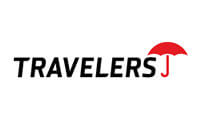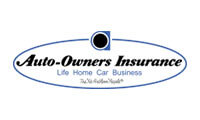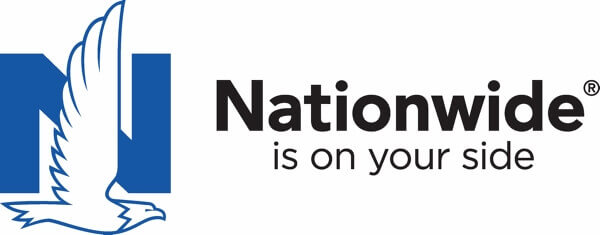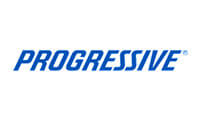








Bodily Injury Liability: This coverage pays for injuries that you, the designated driver, cause to someone else. You (and family members listed on the policy) are also covered when driving someone else’s car with their permission. This coverage protects you against lawsuits filed against you if you are responsible for the accident. Consider buying more than the state-required minimum to better protect you in the event of a serious accident.
Personal Injury Protection: PIP pays the hospital, medical and funeral expenses for you, your passengers or pedestrians that you hit. This insurance covers you regardless of whether you cause an accident.
Property Damage Liability: This coverage pays for damage you (or someone driving your car with permission) may cause to someone else’s property. Usually, this means damage to someone else’s car, but includes damage to lamp posts, telephone poles, fences, buildings or other structures.
Collision Coverage: This coverage helps remedy damages caused when the driver overturns the insured vehicle or crashes with another object. It also covers damage caused by potholes. Collision coverage is generally sold with a deductible of $250 to $1,000—the higher your deductible, the lower your premium. Even if you are at fault for the accident, your collision coverage will reimburse you for the costs of repairing your car, minus the deductible. If you’re not at fault, your insurance company may try to recover the amount they paid you from the other driver’s insurance company. If they are successful, you’ll also be reimbursed for the deductible.
Comprehensive coverage: This coverage reimburses you for loss due to theft or damage caused by something other than a collision. Examples of comprehensive damage include: fire, hail, flood, windstorm, earthquake, falling objects, missiles, riots, or animal contact, like birds or deer. Comprehensive insurance is usually sold with a $100 to $300 deductible, though you may want to opt for a higher deductible as a way of lowering your premium. Comprehensive insurance also reimburses you if your windshield is cracked or shattered. Some companies offer glass coverage with or without a deductible. States do not require that you purchase collision or comprehensive coverage, but if you have a car loan, your lender may insist you carry it until your loan is paid off.
Uninsured Motorist Coverage: This coverage will reimburse you, a member of your family or a designated driver if an uninsured or hit-and-run driver hits one of your vehicle.
Underinsured Motorist Coverage: This insurances comes into play when an at-fault driver has insufficient insurance to pay for your total loss. This coverage also protects you if you are hit as a pedestrian.
Yes. If you lease a vehicle, you still need to buy your own auto insurance policy. The auto dealer or bank that is financing the car will require collision and comprehensive coverage. (We cover these types of coverages in the second question.) Also be aware of other coverages that may be mandatory in your state, such as auto liability insurance.
The leasing company may also require “gap” insurance. This refers to the fact that if you have an accident, and your leased car is damaged beyond repair or “totaled,” there likely will be a difference between the amount you still owe the auto dealer and the check you’ll get from your insurance company. That’s because the insurance company’s check is based on the car’s actual cash value which takes into account depreciation. The difference between the two amounts is known as the “gap.”
On a leased car, the cost of gap insurance is generally rolled into the lease payments. You don’t actually buy a gap policy. Generally, the auto dealer buys a master policy from an insurance company to cover all the cars it leases and charges you for a “gap waiver.” This means that if your leased car is totaled, you won’t have to pay the dealer the gap amount. Check with the auto dealer when leasing your car.
If you have an auto loan rather than a lease, you may want to buy gap insurance to protect yourself from having to come up with the gap amount if your car is totaled before you’ve finished paying for it.
Whether you carpool to work, school or other activities (like sporting events, church functions and club meetings), these share-the-ride arrangements drum up all sorts of insurance questions. Here’s some info to help you sort through carpooling scenarios.
Typically, liability coverage under personal automobile policies does not apply to “liability arising out of the ownership or operation of a vehicle while it is being used as a public or livery conveyance.” (A public conveyance is a vehicle used indiscriminately in transporting the public without being limited to certain persons or occasions. A livery vehicle is one that is offered for rental.) There is slight variation in language among policies issued by various insurers, but the intent is the same: to exclude the use of a personal auto for transporting people or property for income. This exclusion is to prevent coverage for business situations because the personal-use premium is inadequate to cover “public or livery conveyances” conditions, like exposure to traffic situations and pressure to meet delivery schedules.
The typical automobile insurance policy covers personal ride-sharing arrangements because the driving exposure is essentially the same. Even if passengers pay a reasonable amount of money to help cover the commute, it’s unlikely it’s enought o eliminate the driver’s insurance coverage since the car is not being used as a “public or livery conveyance.” The result is that a “personal” premium compensates an insurer for most pool arrangements, even if another member of the pool is driving your car. (Any person using the vehicle with your permission is covered under that auto insurance.)
Overall, in most instances, using a car in a typical carpool arrangement will not affect the protection under the personal auto policy. However, if you carpool, you may want to further discuss the details with us to determine if you should carry higher bodily injury liability limits. Higher medical payment limits may also be in order. Providing full details can help an agent make sure that any fees involved in the arrangement represent coverage for the driver’s operating expenses and not additional income.
Yes, as long as the driver is properly licensed and has your permission to drive the vehicle.
Most personal auto policies provide coverage for driving in Canada. However, we recommend that you check with us before taking your car across the border. Mexican law requires that you purchase separate liability coverage from a Mexican insurance company prior to operating your vehicle. Your personal auto policy may provide some limited coverage, but this coverage must meet the insurance requirements of the Republic of Mexico. Failure to purchase the proper Mexican liability insurance could result in a substantial fine if you are involved in an accident. Again, we suggest that you check with our office prior to taking your vehicle across the border.
In most cases, if the vehicle pulling the trailer is covered under the policy, the liability coverage will be extended to the trailer if you own the trailer. However, physical damage (collision or comprehensive) must be purchased separately. You will need to review your policy for exceptions.